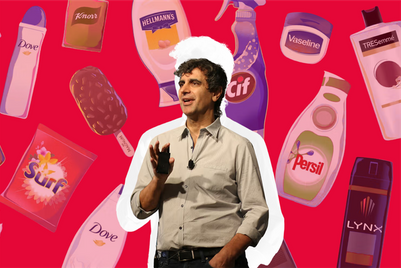
Recently a NASA scientist publicly refuted claims made by Gwyneth Paltrow's website Goop with regards to the supposed healing powers of the Body Vibes stickers it sells. Yes, stickers.
After the scientists's comments in a Gizmodo story went viral, Goop came out with a statement denying any wrongdoing. Obviously, that is the worst possible response, and right on cue, it prompted an even heavier backlash from the internet community.
This isn't the first time Paltrow's statements about healing products have been ridiculed. She has gone on record voicing a belief that yelling at water hurts its feelings and that women should put jade eggs in their vaginas. Like this story, the latter of those two examples reflected a product she was trying to sell through Goop, her lifestyle website.
To understand how Paltrow's company should have responded (other than getting out of the business of selling nonsense products entirely, which doesn't seem likely), we spoke to Yeap Yin Ching, the managing partner of Ying Communications, the most recent acquisition by Finn Partners.
"A business owner’s job is to select partners who are aligned," Ching said, "not just in terms of product segmentation and priorities, but even more fundamentally, with the brand’s values and what it represents."

She recommends that companies that have been caught red-handed have only one way to respond, and that is in a systematic ladder of acceptance, accountability and action.
"First off, don’t shoot the messenger," Ching said. "It isn’t the media’s fault that there has been a lapse in your delivery. They’re just pointing it out. Chances are, if they don’t, someone else will on one of the social-media platforms."
To revive confidence and turn a news cycle to a positive spin, she recommends that wrongdoers must engage with the media and reporters, "contacting them and letting them know you are dealing with it and will give them a statement as soon as you can. Don’t call to threaten them, please. If at all possible, give them a deadline by which time you will either send them something or be in touch again."
As a final step, Ching implores companies to own up fast, do what they have to to fix it and move on. No one expects any company to be perfect. "Customers don’t necessarily stop trusting you when you make a mistake," she said. "They start questioning your brand when they feel you don’t care or that you aren’t taking ownership of the problem. Passing the buck may be legally acceptable but it won’t do a brand in crisis any favors in the eyes of end-users."


.jpg&h=334&w=500&q=100&v=20250320&c=1)



.png&h=334&w=500&q=100&v=20250320&c=1)

.png&h=334&w=500&q=100&v=20250320&c=1)

.png&h=334&w=500&q=100&v=20250320&c=1)





.jpg&h=268&w=401&q=100&v=20250320&c=1)
.png&h=268&w=401&q=100&v=20250320&c=1)

